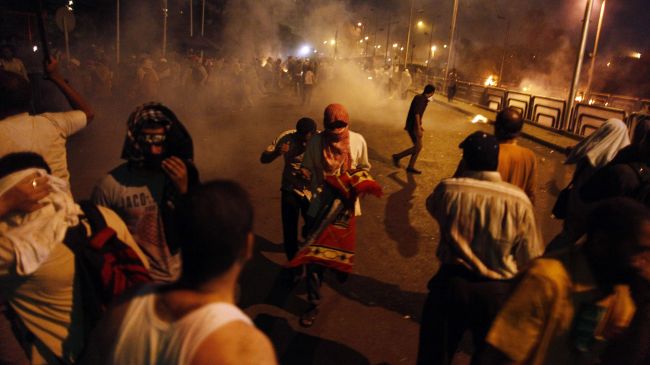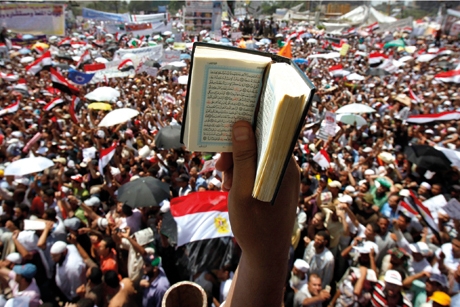It was as if something momentous was happening in New York on Friday September 23, 2011. Palestine Authority president Mahmoud Abbas, whose term had already ended, handed to United Nations Secretary General Ban-Ki Moon an application for full-fledged membership in the world body The symbolism was powerful: eighteen years after the start of the Oslo agreements there was a deep sense that there had been “no improvement.” Mahmoud Abbas’s gesture brought hope. The ovation and the majority support of the UN General Assembly were impressive: the Palestinian cause has many friends around the world, not only Arabs and Muslims. For few minutes, we were swept away by hopes and dreams, forgetting, for only those few minutes, the grim realities of history, facts and figures.
When the Israeli Prime Minister Benjamin Netanyahu delivered his speech, dire reality replaced sweet symbol. Speaking in perfect American English (while Mahmoud Abbas spoke in Arabic), the far right-wing Israeli leader presented another version of the story. The recognition of the new Palestinian State was not to be achieved by a UN summit but through direct negotiations between Israelis and Palestinians. That is the only way forward and if the ongoing discussions have failed over the last twenty years, it is because of Palestinian unwillingness to understand Israel’s legitimate security requirements. The Palestinians were to blame whereas successive Israeli governments have been working tirelessly for mutual recognition and peace. There was silence in the room as the delegates listened attentively to his surrealistic words. No emotional symbols, no false hopes, no dramatics: the simple Israeli rhetorical truth which, we all know, will eventually be supported by the United States and hence by the so-called international community.
The Palestinian request for recognition will be discussed in the coming months. We know already that nothing will happen except—as Netanyahu suggested—a new round of the endless peace talks that have achieved nothing. The Quartet’s members met once again and promised to resume the so-called peace process. Here we are, beyond the symbols, to be asked to wait for another ten years of fine speeches and hypocritical talks.
The facts on the ground tell another story. With or without the UN, with or without the Quartet and the peace process, Gaza faces an inhuman blockade while the Israeli settlements (officially endorsed by the Israeli government) on the West Bank and in East Jerusalem have doubled over the last five years. The truth is that while talking about a Two State Solution, successive Israeli governments have made it impossible on the ground by officially colonizing Palestinian land. The truth is that with or without UN recognition, Israel does not want peace with an eventual Palestinian state for it does not want such a state to exist. We may be content with symbols and dreams; Israel and the United States deal in facts and politics.
An Arab awakening is taking place around us—yet it seems clear that nothing will change in the Middle East if no solution to the Palestine-Israel conflict can be found. It is the central, crucial issue of our times. The people who are calling for dignity, justice and freedom in Tunisia, Egypt, Libya and Syria and in all the other countries in North Africa and the Middle East (MENA) must understand this. They will not get what they aspire for at the national level without a change in the regional dynamic. The uprisings we are witnessing are still very nationalistic; the democratic trends are not broad enough to address the real challenge. There can be no “Arab spring” as long as the Palestinians remain under illegal occupation, as long as they suffer intolerable oppression.
We can blame Israel; we can blame the United States and the West. But ultimate responsibility lies with the lack of consistency and courage of the Arab leadership. It is easy to applaud Mahmoud Abbas’s speech in New York. But where are the Arab governments in reality? They abandoned the Palestinian cause long ago, paying it only lip service from time to time. They have been divided under dictatorships; divided they seem to remain even as they attempt to liberate themselves. The Palestinian Authority is split and unable to find common ground. The least we can acknowledge is that Israel’s divide and rule strategy has been successful due to the endemic weaknesses of the Palestinians bogged down in corruption and petty power struggles.
Arabs and Palestinians must face the new challenges squarely and start to solve their internal problems. MENA as a whole, as well as the Israel-Palestine conflict, require a new mindset, a new vision, and a new commitment to freedom, dignity, justice and pride. We are looking forward not only to political uprisings but also to an intellectual emancipation, an Arab intellectual revolution. This can only happen far from the limelight, the applause and the symbols. It is a long and laborious process of inviting minds and hearts to examine critically their own failures, to be ready to assess the situation objectively. It is time to wake up. The new generations crying out for freedom, dignity and justice should get it right from the very beginning. Today the Arabs’ worst enemies are neither Israel nor the West. They are the Arabs themselves.
Published in the Gulfnews on Tuesday October 4, 2011 :
http://gulfnews.com/opinions/columnists/arab-intellectual-revolution-key-to-assess-critical-failures-1.884322










Israel has no interest in peace. Their transparent plan is to build and build and build on the Palestinian land. They do not care about world opinion as long as USA is on their side and pays them over 3 billion dollars a year which go towards build more settlement and acquiring more weapons.
Yes I agree Palestinians should have their state. A few obstacles though:
– Geographically: a state or two states?
– What about eastern Jeruzalem
– Overall borders
– The issue of the refugees
I’m not from MENA, but still i believe the burden of that responsibility feel by the Muslims all over the world as well, just like how i feel.
The problem and the solution lie within us. Be clear, be creative, be courageous, be persistent, and never give in.
Poème sur la Palestine que je t’offre, en espérant qu’il te plaira
L‘épée de l‘audace c‘est ton peuple qui la détient,
le parfum de liberté, ce sont tes oliviers qui l’exhalent
viendra le jour où le soutien de la Haut se répandra sur ta terre et tes pierres
Puisque ici les gouvernants t’on oublié
C’est sur le tout puissant qu’il faut alors compté
Et ta Grande Mosquée t’annoncera liberté
Et la rue se prosternera,
Les dignes de la Umma souriront,
Le monde se souviendra et dans les livres tu rentreras
ton bel enfant jouira de tes prairies jusqu’aux rives de la Jordanie
Les lâches se lamenteront
Et fuiront tel un corbeau devant un lion
Palestine , ruisseau de sang dans mon cœur
Palestine sceau dans ma mémoire et cause de mes larmes
Je n’ai à t’offrir que ces mots en guise de soutien , mon cœur comme preuve d’amour, mon salut pour la fraternité.
Paris, le 7 octobre 2011